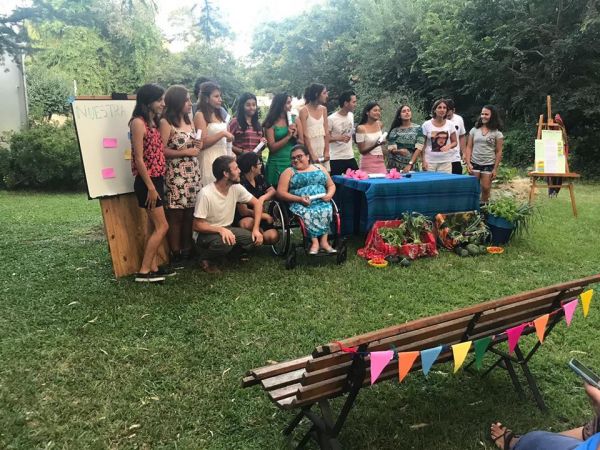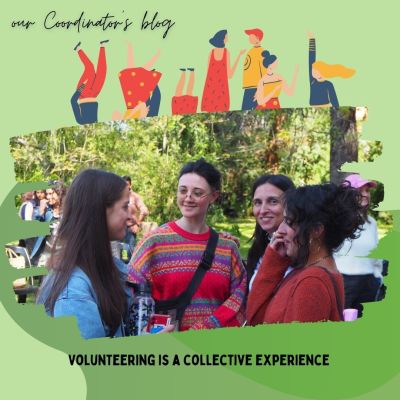Three friendly dogs, wagging their tails, welcomed us. The Pacheco community was an idea that Voluntario Global had cultivated for a long time. In accordance with their mission, they imagined a safe space to educate young adults in the neighborhood about creating sustainable agriculture practices.
Five years ago, their dream came to fruition and they hosted their first students. There is a small classroom at the back of the property, where the walls are lined with information such as the processes of growing food, the importance of developing sustainable practices and the long-term benefits this community garden will create for the local families.
Matias, an agricultural engineer, finished his master’s and wanted to share his passion with a younger generation. His priority was to teach the students how we nourish ourselves in a society where it has almost become impossible to know where our food comes from. Twice a week for six hours, Mathias teaches the students through both theoretical and practical knowledge.
In her bright green dress, Lorena, 18, tells us how her career choices have been greatly influenced by El Pacheco project: “I had no idea what to do after high school. I was thinking to study accounting because I am good with numbers, though I knew that wasn’t my passion. When a friend told me about this class, I jumped on the occasion and applied during my last senior year. I realized how much I loved playing with nature and the design of urban structure. Now, in April, I am starting a five-year course in landscaping at UBA where the fees are free. I am very excited because they rank among the best in the world. Things are looking good.” Her big smile and confidence demonstrate the positive impact the project had on her.
The students arriving as today is a special day: they are graduating from the one-year course and will receive their diplomas in front of their families and friends. Lys, 20, came to support her friend who had completed the course. She has been a regular at Pacheco for the last two years to give a helping hand. Lys heard about the project by word of mouth. This form of communication seems to go a long way in Argentina. She visits a couple of times a week to help with the maintenance of the huerta.
“I like coming here with friends, it’s a refuge where we can talk about life, work and learn about how to cultivate food. Before Pacheco we didn’t really have anything like that around here.” Liz enjoyed the garden so much she spread the word and today two of her friends are volunteers and her sister is also taking classes. Her mom even stops by occasionally to say hi.
While we are talking to Liz, Matías is showing the families around the vegetable garden. Fresh and organic food is being harvested today and given to the visitors for them to take home. We tried the tomatoes and basil, which were juicy and tasty! Pumpkins, eggplants, leeks and spinach were just some of the produce cultivated in the garden. Unless you grow your own produce, it’s easy to forget how ‘real’ food tastes without the influence of pesticides and other chemicals used to grow commercially sold vegetables.
Another important element to note about Pacheco is their minimal use of plastic. In the center of Buenos Aires, you can’t escape the tsunami of non-biodegradable products. For example, when purchasing fruit from a local Fruteria, they insist on separating the fruit with single small plastic bags. When tendering for a garden, it becomes instinctive to be more sustainable and care for nature i.e. Pacheco composts their fruits and vegetables and recycling their waste.
The combination of educating the students about cultivating sustainable food as well as living in solidarity, being kind and recognizing their actions has had a profound impact on the community. Not just a garden, the Pacheco community is the start of a new mentality for the next generation.





